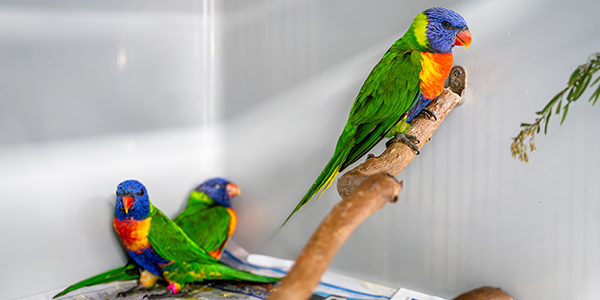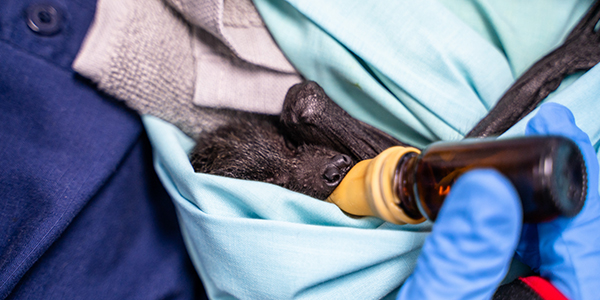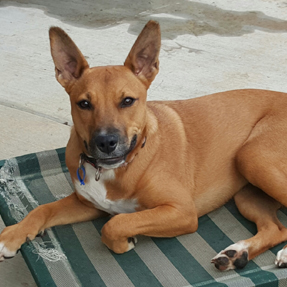Lorikeets suffering from LPS in care at RSPCA Wildlife Hospital.
A flying fox suffering from LPS in care at RSPCA Wildlife Hospital.
Cases of Lorikeet Paralysis Syndrome (LPS) are rising in South East Queensland and flying foxes are also being impacted.
RSPCA Queensland Wildlife Vets have treated 349 lorikeets and 104 flying foxes suffering from the condition since December 1st. Current hot spot suburbs include Toowong and Queens Park, Ipswich.
The RSPCA Hospital in Brisbane has been inundated and the charity is calling on members of the public to urgently seek assistance if they find sick lorikeets or flying foxes.
"Unfortunately, we are at capacity today with flying foxes suffering from paralysis syndrome.
“We’re working with Bats Conservation and Rescue QLD, our wildlife carers, along with the SEQ Hospital Network which includes Currumbin Wildlife Hospital and Australia Zoo to ensure affected flying foxes can get expert care where resources are available,” says RSPCA Queensland Wildlife Veterinary Director, Dr Tim Portas.
Since the start of the year, 5,821 lorikeets have come into the RSPCA’s care, with up to 200 new birds entering the Wildlife Hospital daily in January and February. 49 Ipswich birds were released together in March.
“Flying foxes were also affected earlier this year, but not the volume we’re seeing currently which is putting pressure on our team to find resources and space to accommodate them,” says Dr. Portas.
Symptoms of Lorikeet Paralysis Syndrome
- Inability to fly
- Hopping / wobbly gait
- Voice changes
- Inability to blink and/or swallow
LPS is treatable when found early but requires weeks of intensive care.
How to help:
- If you find a sick flying fox, do not touch them. Call the RSPCA on 1300 ANIMAL, Bat Conservation and Rescue Qld, or your nearest wildlife carer.
- If you find a sick lorikeet you can transport them to your nearest vet for triage in a box with ventilation and a towel, otherwise call the RSPCA on 1300 ANIMAL or your nearest wildlife carer.
This financial year 27,423 native animals have been admitted into the RSPCA’s Wildlife Hospital at Wacol and Rehabilitation Centre at Eumundi. The additional 2,552 animals this year highlights the pressing need for the RSPCA’s new purpose-built Wildlife Hospital at the Redlands to become a reality. Members of the public can contribute towards the final stage of funding for the project by donating on the RSPCA’s website.










